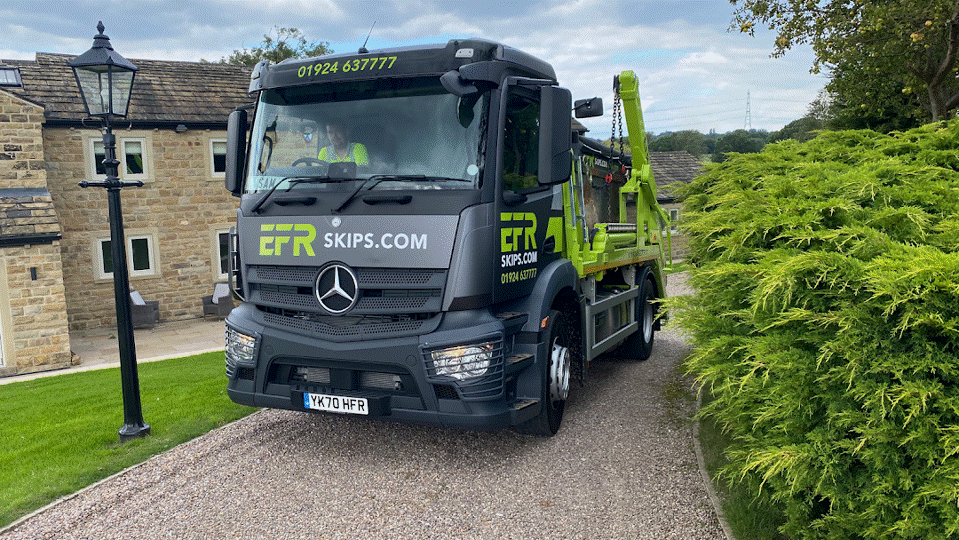01135348006
Skip Hire & Grab Hire Business Migrating to Standard Operator's Licences
Zed Aziz
19th March 2023

Skip hire & Grab Hire businesses are required to obtain a standard operator's license because they operate heavy goods vehicles (HGVs) that have a gross weight exceeding 3.5 tonnes. According to the law in the UK, any business that operates such vehicles for commercial purposes must have an operator's license. The license is issued by the Traffic Commissioner and is mandatory for businesses that use HGVs to transport goods or waste.
The license ensures that skip & grab Hire businesses comply with regulations related to vehicle safety, driver training, maintenance, and environmental standards. The license also helps to prevent unqualified operators from running a skip hire business, which could lead to unsafe driving practices, increased road accidents, and environmental damage. Furthermore, the operator's license also ensures that the skip hire business complies with regulations related to the transportation and disposal of waste. It requires businesses to have appropriate waste management systems in place to ensure that waste is handled and disposed of correctly.In summary, skip hire businesses are required to obtain a standard operator's license to ensure the safe and legal operation of heavy goods vehicles and to ensure that waste is handled and disposed of correctly.
Do Skip Hire & Grab Hire Businesses require a Standard or Ristricted Operator Licence?
The law is in the process of being changed, nothing as yet finalised, although its pretty clear that going forward any new skip hire and grab hire businesses are required to apply for a Standard National Operator Licence.
The basis of the ruling to change skip and grab hire operators from restricted to standard licence is based on the following comments by the traffic commissionetr.
Where a predominant part of theservice is the transportation of goods, that is likely to fall within the definition givento hire or reward adopted by the Upper Tribunal. Where the transport is part of the operator’s wider business, such as converting or processing of the goods asopposed to simply conveying them to another place, that is likely to fall within thedefinition of section 3(3).
Skip Hire & Grab Hire Businesses are facing multiple challanges
Skip hire operators in the UK face a number of challenges, including:
Regulatory Compliance : Skip & Grab hire companies must comply with various regulations regarding waste management, environmental protection, vehicle operator obligations and health and safety. This can be complex and costly, especially for small operators.Competition : The skip & grab hire market in the UK is highly competitive, with many companies operating in the same areas. This can make it difficult for operators to maintain profitability and grow their business. There are a large number of skip hire companies in the UK, which means that competition can be fierce. Operators need to offer competitive prices and excellent customer service to stand out from the crowd.Rising costs : The cost of operating a skip hire business in the UK has been increasing due to factors such as higher landfill taxes, fuel prices, insurance premiums and HGV driver shortages. This can put pressure on operators to raise their prices, which can make them less competitive.Rouge traders : Using social media to con people into parting with their waste on the cheap should be a warning sign to consumers. People are then discovering their waste has turned up in a country lane or beside the road. These illegal waste carriers undermine legitimate businesses, undercut their prices and blight the environment.Theft and Vandalism : Skip hire companies are often targeted by thieves and vandals who steal or damage their equipment. This can result in significant losses for operators and may also affect their ability to serve customers.Waste Disposal Issues : Skip hire operators need to ensure that waste is disposed of properly and legally. This can be challenging, particularly as landfill space in the UK is limited and waste disposal costs are high.Transportation : Skip hire operators must transport their skips to and from customer sites, which can be difficult in urban areas with congested roads and limited parking. This can also result in increased fuel costs and vehicle wear and tear.Increasing regulation : The UK government has implemented new regulations to reduce waste and increase recycling, which has led to increased costs and complexity for skip hire operators.Waste classification : The classification of waste can be complex, and skip-hire operators need to ensure that they are disposing of waste in accordance with legal requirements. Failure to do so can result in heavy fines. Dealing with controlled and hazardous waste is already challenging for these operators, but the addition of the new legislation regarding waste containing persistent organic pollutants (POPs) is making the industry virtually impossible to administer.Environmental concerns : With increasing public concern over the environment, skip-hire operators need to ensure that they are disposing of waste responsibly and that they are recycling as much as possible. The Environmental Agency (EA) requires all waste to be categorised so that it can be processed accordingly, which requires added layers of administration and compliance.Health and safety : Skip hire operators need to ensure that their staff are properly trained in health and safety procedures to prevent accidents and injuries.Vehicle and equipment maintenance : Skips, trucks, and other equipment used by skip hire operators need to be well-maintained to ensure that they are safe and effective. As Vehicle Operator Licence holders, these operators have the oversight of the DVSA and the Traffic commissioner requiring compliance across multiple areas, such as, driver hours, road safety, vehicle maintenance and emissions.Weather conditions : Extreme weather conditions such as heavy rain, snow, or high winds can affect the safe operation of skip hire trucks and the delivery and collection of skips.